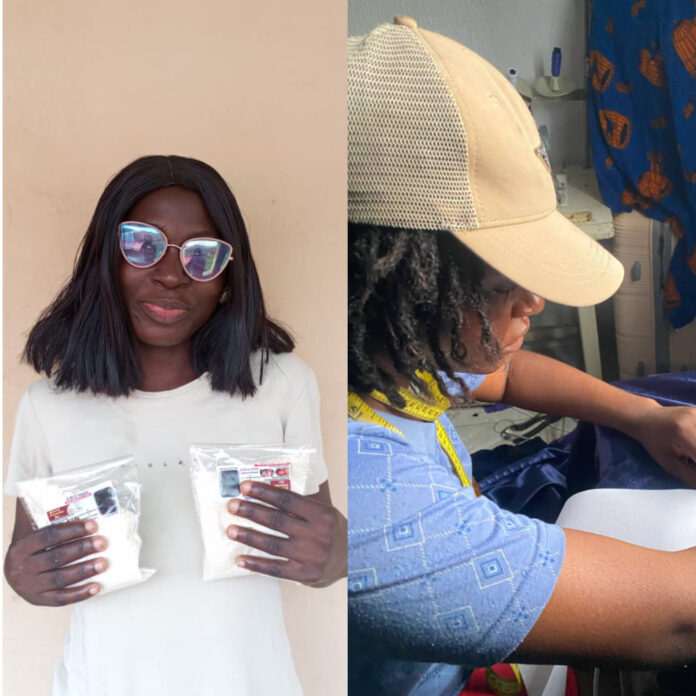By Oyeyemi Abolade
At 4 a.m., while most of Lagos is still asleep, Victor, a 29-year-old accountant, is already up — not to meditate or sip coffee, but to scroll through work emails. By the time he gets home at 10 p.m., his body is heavy from reconciling accounts, advising clients, and trying to keep his small side business, a footwear venture — alive.
You“One source of income feels too risky in an economy like ours,” he says with a weary smile. “Side hustles are a necessity to survive Nigeria’s harsh reality. Make the person no come turn beggar,” Victor expressed.
Victor’s story is not unique. From students to artisans to tech workers, young Nigerians are running themselves ragged — stacking multiple jobs, chasing endless gigs, and pushing their bodies to the edge. The hustle is less a badge of ambition and more a lifeline in a country where survival itself has become a full-time job.
An Economy that Forces the Hustle
Nigeria’s economic hardship made hustling a way of life. Inflation hit 33.7% in April 2024, the highest in nearly 30 years, according to the National Bureau of Statistics (NBS). Food inflation soared to 40.5%, forcing families to ration meals and cut back on basics.
On paper, unemployment looks better. Under the NBS’s new methodology introduced in 2023, joblessness sits at 7– 8%. But analysts say the numbers hide reality: hidden underemployment and survival hustles define youth livelihoods. Many young people are not “employed” in the sense of stability; they’re simply grinding to stay afloat.
The burden is compounded by the “black tax,” the cultural expectation to support extended family. A 2023 PiggyVest report found that 56% of Nigerian earners shoulder this duty every month. It’s no wonder side hustles feel less like ambition and more like obligation.
A Society that Glorifies Busyness
Juliet, a psychologist who works with young Nigerians, says the link between hustling and mental health is impossible to ignore.
“More young people are walking into my office with depression, anxiety, or even substance addiction — conditions directly tied to their hustle,” she explained. Her words echo the World Health Organization’s data: in low-resource countries, 1 in 5 people live with a mental health condition. Nigeria’s stigma around mental health means the numbers may be even higher.
Juliet worries that the societal obsession with money and status leaves little room for rest. “Our culture measures worth by financial status. That’s why many youths push themselves against all odds — to ‘make it’ regardless. But it’s costing them their lives.”
Students on the Edge
Moyo, a University of Ibadan student, hustles to keep her education afloat. On weekdays, she attends lectures. On weekends, she processes and sells packaged foods: bean flour, wheat, and spices, just to cover her bills.
“The thought of having my own money excites me,” she says. “But stress is not good for the body, and school won’t understand when it’s time to pay tuition fees.”
Even with strict discipline, her earnings rarely match her needs. The dream of independence often feels like a treadmill she can’t step off.
Artisan Dreams, Double Burden
Peace, 26, rises at 3 a.m. to open her tailoring shop in Lagos, only to juggle it with her teaching job. Her passion for design is real, but bills and rent are merciless. “I chose tailoring out of passion,” she says, “but bills must be paid, and they don’t care about mental health.
Some days, she feels buried under the uncertainty of clients and fluctuating income. Still, she finds solace in faith: “The goal is to be happy and make others happy. In whatever capacity I function, I will do it with pleasure through Christ who strengthens me.”
Family and Cultural Weight
For many, the hustle isn’t only about the economy. Family and cultural expectations add invisible weight.
“In our time, we didn’t have to strive this hard,” says Akin, 55, a community leader. “But today’s youth juggle multiple jobs just to meet societal standards. Busyness itself has become glorified.”
Juliet, the psychologist, sees it daily: “Some parents see their children as a poverty alleviation scheme. That becomes a point of pressure. I had a client barely in her 20s juggling jobs to support her family while still in school.”
Firstborns, male children, and first daughters often bear the heaviest load, while younger siblings may face fewer expectations. “The pressure is not always peer-driven,” Juliet adds. “It is what family expectations put on you.”
The consequences can be devastating — substance abuse, hidden breakdowns, or silent suffering. “At the NYSC camp,” Juliet recalls, “many young people struggled to admit stress or mental issues. Nigeria’s culture of resilience makes it hard to believe youths can be depressed. That silence only worsens the problem.”
The Fragile Balance
From Victor to Moyo to Peace, one thread runs through their stories: hustling is no longer optional, it is a necessity. For young Nigerians, it is both survival strategy and identity. But the costs are mounting: burnout, strained relationships, mental health crises, and the quiet fear that the future may not hold the relief they seek.
As Victor admits, “Burnout feels very close at times.”
Without stronger safety nets — living wages, fair labor practices, affordable healthcare, and accessible mental health support — a whole generation risks exhaustion before it even has the chance to blossom.




